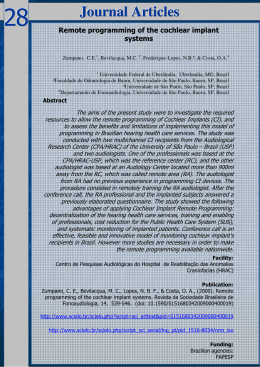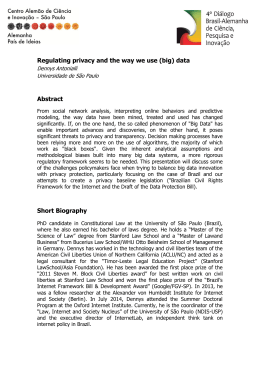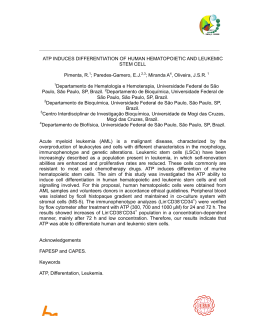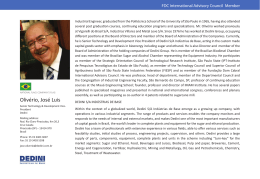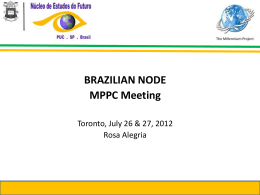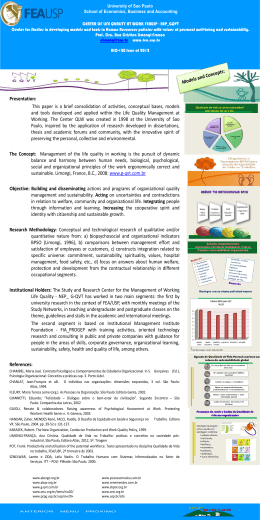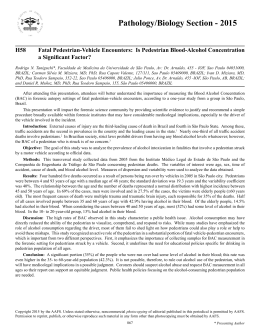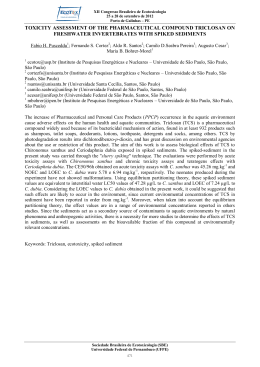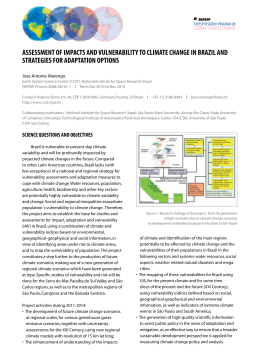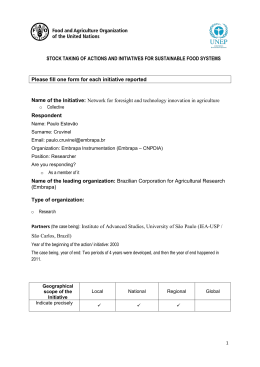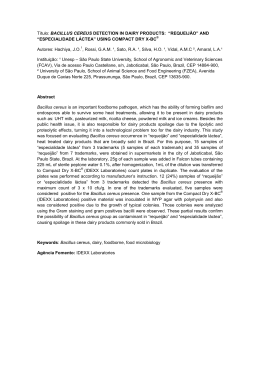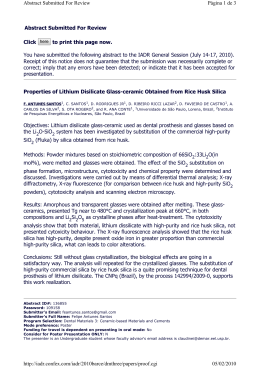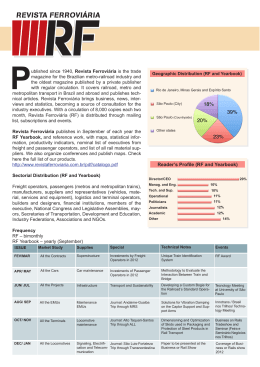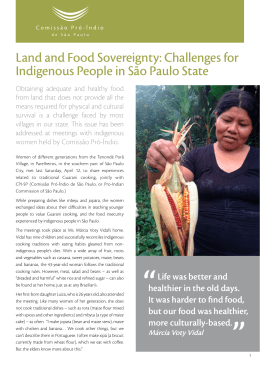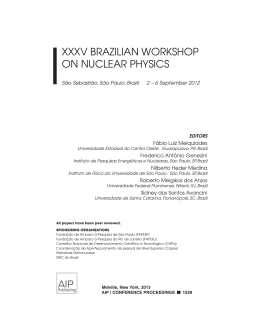28ª REGEM Reunião de Genética de Microrganismos 09 a 11 de setembro de 2012 - Rafain Palace Hotel & Convention Center - Foz do Iguaçu - PR Temperature and blood feeding effect on the global transcriptional profile of a virulent Rickettsia rickettsii during its tick vector Amblyomma aureolatum infection. Galletti, M.F.B.M.1, Malossi, C.D.1, Nishiyama, M.Y.3; Fujita, A.4; Pinter, A.5; Labruna, M.B.2; Daffre, S.1, Fogaça, A.C.1 Dep. de Parasitologia, Instituto de Ciências Biomédicas, Universidade de São Paulo, São Paulo, Brazil. 2 Dep. Medicina Veterinária Preventiva e Saúde Animal, Faculdade de Medicina Veterinária e Zootecnia, Universidade de São Paulo, São Paulo, Brazil. 3 Dep. de Bioquímica, Instituto de Química, Universidade de São Paulo, São Paulo, Brazil. 4 Dep. De Ciências da Computação, Instituto de Matemática e Estatística, Universidade de São Paulo, São Paulo, Brazil. 5 Superintendência de Controle de Endemias (SUCEN), Secretaria de Saúde, Governo do Estado de São Paulo, São Paulo, Brazil. 1 [email protected] Keywords: Rickettsia, tick, stress response, transcriptome, T4SS Rickettsia rickettsii is a highly pathogenic intracellular bacterium responsible for the potentially lethal Rocky Mountain and Brazilian spotted fever (RMSF and BSF, respectively). In Brazil, the numbers related to BSF are alarming as deaths in 2010 were around 32%, according to São Paulo’s State Health Division. The infection effect within its tick vector is known for compromising reproductive and survival rates. In addition, environmental conditions such as the elevation of the temperature to mammalian host temperature and blood feeding acquisition by the tick vector are enrolled in virulence reactivation. Therefore, studies on the effects of these stimuli on the global gene expression profile of R. rickettsii may provide tools to better understand bacterial virulence mechanisms as well as the interactions between this bacterium and its tick vectors. Here we report the first in vivo transcriptional study of a virulent Brazilian strain of R. rickettsii during infection of the tick vector Amblyomma aureolatum. Infected A. aureolatum females were divided into 3 testing groups, exposed to two different incubation temperatures (25oC or 35oC) or blood feeding on its natural host, the dog. Total RNA from the groups were used to analyze 99,5% of R. rickettsii genes by oligonucleotide microarrays. Data showed that both stimuli modulate the global gene expression profile of R. rickettsii. Interesting, encoding genes of type IV secretion system components (T4SS) and proteins involved in redox reactions were up-regulated by feeding. Microarray data are currently being validated by quantitative polymerase chain reaction preceded by reverse transcription (RT-qPCR). Financial Support: FAPESP. MICRO034
Download




